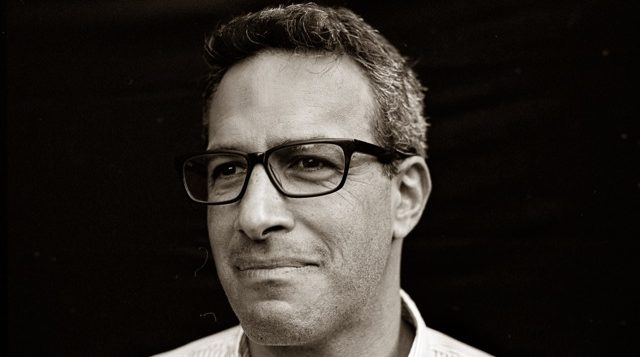My son Willie just noticed this book on our shelf. I’ve had it for probably 20 years. Never noticed. Somebody should study this.


My son Willie just noticed this book on our shelf. I’ve had it for probably 20 years. Never noticed. Somebody should study this.

My longtime colleague, Caren Rotello, has retired from UMass, though she’ll continue to contribute to the field as Editor in Chief of Cognitive Psychology. Over her career, Caren has been one of the foremost contributors to the mathematical modeling of memory. Caren was an important mentor to me on many professional matters when I was a new assistant professor, and was the person who first got me thinking about analysis of response time distributions. She was Chair of our department for over four years, and did an amazing job leaving us in a positive budget situation and overseeing a very diverse group of faculty hires. Caren, I wish you the very best for your next chapter!
Rosie Cowell and Dave Huber, long-time colleagues in the Cognition and Cognitive Neuroscience Program, have decided to leave UMass for new opportunities at CU Boulder. We too rarely mark these transitions; we welcome new colleagues when they arrive, but carry on with a stiff upper lip when they leave. In this case, that’s difficult, as not only are Rosie and Dave great scientists who have made important contributions to our community at UMass, but they have been very dear friends over the past few years. On a personal level, I’ll miss them….a lot. I wish them the very best in their new roles in Colorado.
I’m honored to report that as of January 1, 2023, I will be the Editor-in-Chief of the Journal of Memory and Language. I’m taking over from Kathy Rastle, who has done an amazing job for the last four years instituting new open science initiatives, shepherding interesting special issues, and running a very efficient operation while emphasizing a high-quality review process. She will be a difficult act to follow.
Also, eye movement researchers should be aware that Simon Liversedge and I will be editing a Special Issue of JML entitled “Eye Movements in Reading at 50: Methods, Models, and Findings.” Full details are here. Please don’t hesitate to contact me or Simon if you have questions about submitting; the deadline is March 1, 2023.
Our paper (Staub, Dodge, & Cohen, 2019) on readers’ failure to to notice repetitions and omissions of ‘the’ has been featured by the Psychonomic Society, in this excellent article by Cassie Jacobs.
(Did you notice the repetition above?)
In Fall 2018 I will be teaching a new class, Psychology of Reading (Psych 391RE). It will meet Tuesday and Thursday 1-2:15.
This undergraduate seminar focus on the cognitive processes involved in reading. We will review research on word recognition in skilled reading, on how reading is integrated with the control of eye movements, and on how readers comprehend sentences. We will also learn about the neuroscience of reading, about reading development and instruction, and about how reading works in non-alphabetic writing systems.
I would be happy to have students from a variety of disciplines (e.g., Linguistics and Com Dis), in addition to Psychology students. If you’re interested in an advance copy of the syllabus, please contact me.
Andrew Gelman has a very thoughtful reply here to Lisa Feldman Barrett’s op-ed in the NYTimes, in which she claims that the ‘crisis of replication’ in psychology is not really a crisis at all, but rather reflects flourishing science. I agree with essentially all of Gelman’s points. (Thanks to Caren Rotello for pointing me toward Gelman’s blog.)
I will be on sabbatical during spring 2015. Starting in December 2014, I may not reply to email quite as rapidly as usual, but I will, eventually, reply. Students who are interested in working in my lab in Fall 2015 should drop me a line at some point in late spring or over the summer.
I’ll be around more than not, though I’ll be doing some work-related travel to talks and conferences. In the summer, I will be in Paris as a Visiting Professor for the Labex EFL Project, where I’ll be giving some lectures about predictability effects in language comprehension. I’ll also be teaching a mini-course at the University of Salzburg on eye movements in reading, and teaching at a summer school at the University of Milan-Bicocca.
Welcome to my new website, still very much under development.
To have something to put in a first post, I’ll link to this very interesting Nature Reviews Neuroscience paper by Button et al. (2013); thanks to Neil Berthier for bringing it to my attention. The paper discusses a statistical concept I hadn’t previously encountered, “Positive Predictive Value” (or PPV), which is the conditional probability that given a rejection of the null hypothesis, the null is actually false. It points out that PPV depends very strongly on statistical power: For low powered studies, it can be the case (given some assumptions about the base rate of true vs. false null hypotheses) that most rejections of the null actually arise when the null is true! The paper is primarily concerned with the problem this presents for the interpretation of human neuroscience studies, but it’s clearly a problem for other branches of psychology as well. The moral here is that the power of your study not only influences the probability of rejecting the null, if the null is false; it also influences the probability that a rejection of the null, if you do reject, corresponds to a real effect. This result provides some justification for the intuition that I (and maybe most people) have that results meeting conventional tests for statistical significance (i.e., p < .05) are still to be taken less seriously when the study is very small.